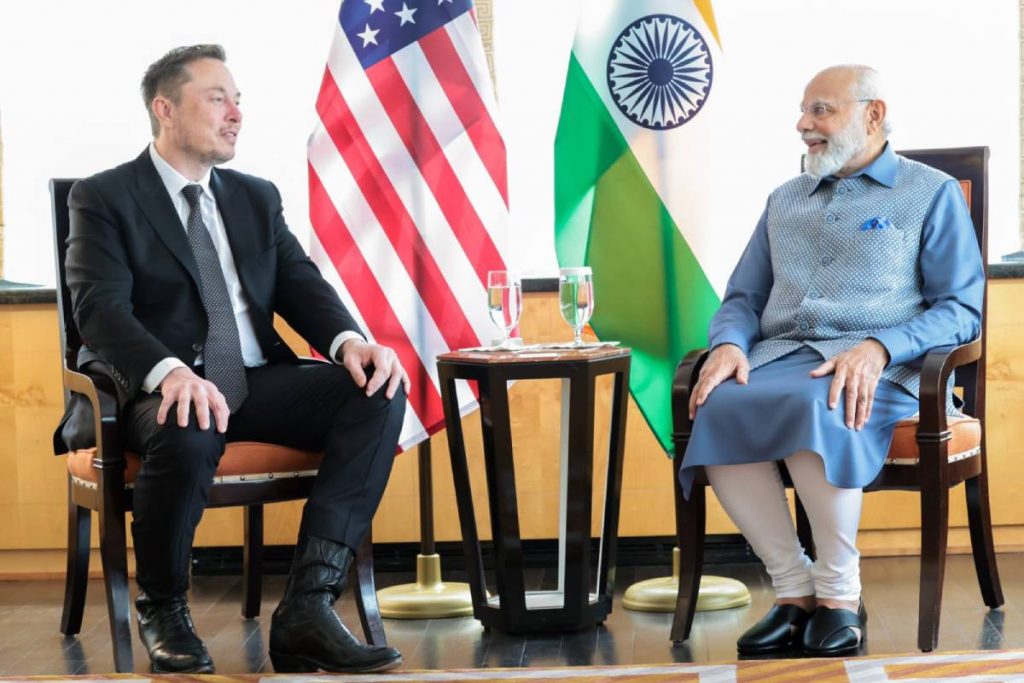Tesla lovers in the country are anxiously waiting for the first response from Elon Musk after the government approved a new electric vehicle (EV) policy that is designed to attract investments in the EV space by global manufacturers like the Musk-run electric car company.
It was in 2015 when Prime Minister Narendra Modi visited Tesla headquarters in Palo Alto, California and met the billionaire who gave the Prime Minister a tour of the company’s electric car plant.
In later years, the billionaire sought customs duty to be lowered so that he could bring Tesla vehicles to the country.
Presently, customs duty on cars imported as completely built units (CBUs) varies from 60-100 per cent, depending on their cost.
In the new policy, the government has reduced the customs duty to 15 per cent, with certain riders.
“The customs duty of 15 per cent (as applicable to completely knocked down or CKD units) would be applicable on the vehicle of minimum value of $35,000 and above for a total period of five years subject to the manufacturer setting up manufacturing facilities in India within a 3-year period,” according to the government.
This now paves the way for Musk to enter the Indian market.
Last year, PM Modi met Musk in the US and appreciated his efforts at making technology accessible and affordable in various sectors.
The Prime Minister invited Musk to explore opportunities in India for investments in electric mobility and the rapidly expanding commercial space sector.
After hearing PM Modi’s ‘Make in India’ pitch, the Tesla CEO announced that his electric vehicle and battery company will come to the country “as soon as it is humanly possible”.
“He (PM Modi) really cares about India because he’s pushing us to make significant investments in India, which is something that we intend to do and we’re just trying to figure out the right timing,” said the billionaire.
In the new EV scheme, the government mentioned that a minimum investment of Rs 4,150 crore (about $500 million) will be needed to set up manufacturing facilities and production started within three years and reach 25 per cent DVA (domestic value addition) by three years and 50 per cent DVA within 5 years at the maximum.
India’s EV market has the potential to achieve over 40 per cent penetration with $100 billion revenue by 2030.
